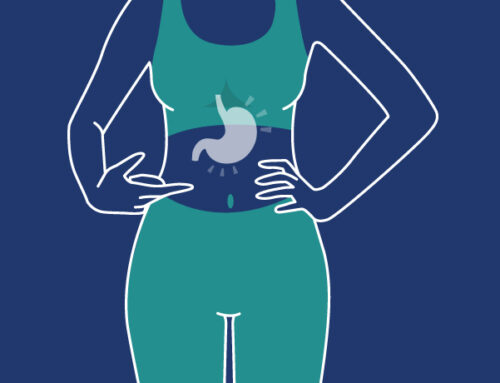Dysbiosis is an imbalance in the gut microbiota, where harmful bacteria overshadow beneficial ones. It disrupts the normal, harmonious relationship within the gut ecosystem. UC is a chronic inflammatory bowel disease (IBD) that causes long-lasting inflammation and ulcers in the digestive tract, particularly the colon and rectum.
Understanding Dysbiosis
The gut microbiome is a community of diverse microorganisms, including bacteria, fungi, and viruses, residing in the human digestive tract. Its composition and abundance are crucial for maintaining overall health.
What Constitutes Dysbiosis?
Dysbiosis occurs when there’s a significant shift in the gut microbiome’s composition, often marked by a decrease in microbial diversity and an increase in pathogenic species.
Causes and Risk Factors of Dysbiosis:
Factors such as diet, medication use, stress, and genetics can trigger dysbiosis. Studies have shown that certain diets and medications can significantly alter the gut microbiome’s state.
Symptoms and Diagnosis
Symptoms range from digestive discomfort to severe inflammation. Diagnosis often involves analyzing stool samples to study the gut microbiome composition and compare it with healthy controls.
Ulcerative Colitis: A Closer Look
UC is a chronic condition characterized by inflammation and ulceration of the colonic mucosa. Symptoms include abdominal pain, diarrhea, and rectal bleeding.
Causes and Risk Factors:
While the etiology of UC involves genetic, environmental, and immune system factors, emerging research suggests dysbiosis as a potential contributor.
Diagnosis and Treatment Options:
Diagnosis typically involves colonoscopy and imaging studies. Treatment options include medication to reduce inflammation, immune system modulation, and, in severe cases, surgery.
Impact on Quality of Life:
UC can significantly impair patients’ quality of life, leading to physical discomfort and psychological stress.
Can dysbiosis cause ulcerative colitis?
The direct causation of ulcerative colitis (UC) by dysbiosis is a complex and multifaceted issue, and the current scientific understanding suggests that dysbiosis may not directly cause UC but can significantly contribute to its development and exacerbation.
Ulcerative colitis is considered a multifactorial disease, meaning its onset and progression are influenced by genetic, environmental, immune, and microbial factors. Dysbiosis, an imbalance in the gut microbiome where harmful microorganisms outnumber beneficial ones, plays a notable role in this interplay. It can disrupt the gut’s ecological balance, leading to increased inflammation and altered immune responses, which are central features of UC.
The Intricate Connection Between Dysbiosis and Ulcerative Colitis
The Pivotal Role of Gut Microbiota in Ulcerative Colitis
The relationship between the gut microbiota and Ulcerative Colitis (UC) is an area of intense research and fascination. Numerous studies have illuminated a striking pattern: many patients with UC exhibit a distinct form of gut microbiota dysbiosis. This dysbiosis is typified by a significant decrease in microbial diversity and a conspicuous alteration in the composition of these microbial communities. Instead of a harmonious and balanced microbiome, individuals with UC often have a skewed population where potentially harmful ones outnumber beneficial bacteria.
The Potential of Dysbiosis to Trigger or Worsen UC
The question that naturally arises is: How might dysbiosis contribute to the onset or exacerbation of UC? The connection is multifaceted. Dysbiosis can ignite a cascade of negative effects within the gut. It can exacerbate inflammation, a cornerstone of UC pathology. Moreover, the altered microbial landscape might trigger an abnormal immune response, leading to the body mistakenly attacking its tissues. This is compounded by the fact that dysbiosis can weaken the intestinal barrier, leaving the gut lining more susceptible to damage and inflammation. Collectively, these factors suggest that dysbiosis contributes significantly to the pathogenesis of UC, either by initiating it or by intensifying its progression.
Counterpoints: The Multifactorial Nature of UC
It is crucial, however, to acknowledge that UC is a complex disease influenced by many factors. While dysbiosis is undeniably important, it is only one puzzle piece. Genetic predisposition, environmental triggers, and immune system dysregulation also play pivotal roles in the development of UC. Therefore, a holistic view of the disease’s etiology is essential.
Strategies for Managing Dysbiosis
Dietary Changes and Nutrition
One of the frontline strategies for managing dysbiosis and, by extension, potentially mitigating UC symptoms is through dietary modifications. Embracing a fiber-rich diet and low in processed foods can foster a healthier gut microbiome. Such nutritional interventions can lead to an increase in beneficial bacterial populations and a decrease in harmful ones, thereby potentially alleviating the symptoms of UC.
The Role of Probiotics and Prebiotics
Supplementing the diet with probiotics and prebiotics is another promising avenue. Probiotics introduce beneficial bacteria into the gut, while prebiotics provide the necessary nutrients to support the growth of these beneficial microbes. By restoring the balance in the gut microbiota, these supplements can help in managing dysbiosis and possibly in alleviating the symptoms of UC.
Medications and Targeted Therapies
Conventional treatments for UC, such as antibiotics, anti-inflammatory drugs, and biologics, play a critical role. However, targeting dysbiosis through specific therapies could offer additional therapeutic benefits. Tailoring treatments to address the microbial imbalances in the gut could enhance the efficacy of UC management strategies.
Lifestyle Changes and Stress Management
Lifestyle modifications and stress management also hold immense potential in influencing gut health positively. Stress reduction techniques and other lifestyle changes can have a beneficial impact on the gut microbiome and, consequently, on the management of UC.
Personal Journeys and Expert Perspectives
Success Stories: Overcoming Dysbiosis and Ulcerative Colitis
There are numerous inspiring stories of individuals who have successfully managed their UC symptoms by addressing dysbiosis. These stories often involve significant dietary changes, probiotics, and effective stress management techniques. They offer hope and practical insights into how managing dysbiosis can positively impact UC management.
Challenges and Real-life Experiences
Managing UC and dysbiosis has its challenges. Accounts from patients highlight the complexities and struggles involved in dealing with these conditions. These stories provide a realistic perspective on the disease and underscore the importance of personalized approaches in management.
Expert Opinions and Cutting-edge Research
Insights from gastroenterologists and microbiome researchers are invaluable in understanding the latest findings and recommendations for managing UC and dysbiosis. Their expertise sheds light on new developments and guides patients and healthcare providers in making informed decisions.
Conclusion
In conclusion, while dysbiosis and UC are intricately linked, the relationship is complex and multifactorial. Approaches to managing dysbiosis, from dietary changes to targeted therapies, hold promise in potentially mitigating UC. Personal stories and expert opinions enrich our understanding, offering hope and guidance in navigating these interconnected conditions.




